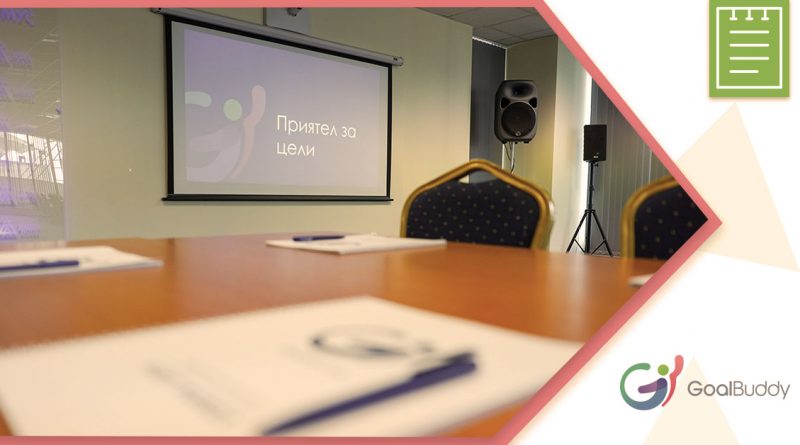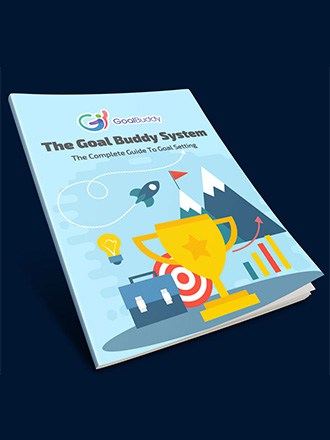The 3 stories of victimhood we all tell ourselves
We see this phenomenon much more readily in others than in ourselves. Nobody likes to listen to excuses. It’s doubly frustrating when we resort to it ourselves right at the moment when we realize we are doing exactly that. Today we will look at several options and specific examples so that each of us can recognize that moment as early as possible and thus put a stop to it.
Taking responsibility
It’s very simple – when you take on the role of the victim, you drop any responsibility and you try to convince others of this. It’s always someone or something to blame for your failure. Dropping accountability like a hot potato is preferable for many of us to be ready to look at our actions with a good amount of self-criticism.
And that’s the easy part.
It’s difficult to admit it’s all of your doing and then figure out what happened, to examine the issue with your actions from all possible angles. There is this one question that will come quite handy here.
Let’s ask ourselves
“What is it that I did /or didn’t do/ so that I am the current situation?”
It’s crucial to review both our actions as well as our inactions (we tend to often skip the latter).
The three stories
These illustrate three different cases that every one of us could easily run into. They all begin with the belief that we are not to answer for how things unfolded. Let’s go over these three cases while keeping in mind the question from the above.
Story #1: I did everything perfectly but it didn’t work out in the end
These are the words /more or less/ we tell ourselves when we focus only on the first part of the question “What did I do or did not do”. That is, we remember very well all of our efforts but somehow we forget what we didn’t do. Maybe that’s where the problem is.
The example with work
It’s such a typical story when you worked hard on a project, even on the weekends. You gave it 100% of yourself and yet your manager didn’t appreciate it and in the end, you were dropped from the team.
Do you feel it was unfair? Probably you do. But only because when you tell this heartbreaking tale of unfairness you don’t mention the second part. That is – there was an important deadline that you missed and that was the real reason for being kicked out of the project.
The example of getting in shape
This is a classic one.
Anyone who listens to you would feel empathy and no less admiration. You are going to the gym 4-5 times a week and exercise for hours on end. And yet, there is little to show for all the sweat you shed. Perhaps you missed mentioning one small detail?
Like the “unimportant” fact that in the evening you load yourself with tons of calories with beer, pizza, chocolate cake?
Example from business
It’s not easy to get to the bottom of things when there are too many factors at play. Running a business is such a case. This is especially true when it comes to doing something for the first time, being innovative and yet reasonable.
One could be too quick to write off the failure as a result of unforeseen circumstances.
You can repeatedly tell yourself how much time and effort you put in, how you hired the best team, and did your best to make it happen. What you can’t admit though is that you kept ignoring the feedback of potential clients. But then don’t act surprised how this “tiny” misstep did you in.
How to not fall into this trap
“I did not achieve my goal, although I did my best.”
Usually, we love to see ourselves as very good in every possible way and it is something else beyond our reach that did us in. Not being honest with ourselves will keep sabotaging us. Therefore, the key here is first to acknowledge not only what we have done, but what we haven’t done. And then, the next step is to start looking for a solution in the right direction.
Story #2: “I wasn’t at fault but someone else (a bad person) who ruined it for me”
There are always some “villains” like that and they are everywhere. They may not be evil-minded at all but well-meaning, i.e. it could be our friends and family. But it’s way too convenient when we are looking for someone else to blame.
We tell such stories when we want to run away from responsibility looking to point finger at someone else.
The example of getting in shape
How is it possible that someone who badly wants to shed off a few extra pounds is always stalked by bad people who “force-feed” him with carbohydrates?
Recently, a friend of ours shared how his wife is this terrible person. He gets home from work, tired and hungry and she, you see, has made a wonderful cake. How is he supposed not to have a piece or two! It’s impossible to lose weight under such loving care.
It’s pretty much the same with our friends. As soon as they hear we are on a diet they want us to join them for a happy hour with pizza and beer. You know, “With friends like that, who needs enemies”.
The example of running a business
One complaint we hear over and over again is how our family wasn’t as supportive and helpful in any of our efforts. Surprisingly, many people with no entrepreneurial bone whatsoever are quick to blame their parents. They left us no business or any other property so that we, aka their kids, could build on it and prosper.
How to get rid of the idea that it is other people who stand in our way
“It’s not that I’m exceptionally great, but how about the many people who are far from great! And these are the same people who keep throwing me off track.”
Well, let’s stay away from that line of thinking. And once again, we can do that by answering what we did and what we didn’t do.
Taking control is possible only by focusing on our actions.
Story #3: It is very little we could do and therefore there is no point even trying
This attitude is at a completely different level. While in the first two cases you still acted with some belief in success now you don’t even have that.
That is, you are so deeply invested in that mindset that it would eventually become a self-fulfilling prophecy killing any desire to act.
The example of getting into shape (one last time)
Ah, it’s truly something to get in shape, right? And imagine how it is for someone with bad genes, slow metabolism, and on top of that – insulin resistance! Does it make sense to keep trying when one is so disadvantaged?
Example of how things are in Bulgaria
We’ve been hearing it for many years now. “Nothing good is going on. The economic growth is sluggish, the pollution is high. The overall business environment is so-so, the bureaucracy is all about red tape. It’s just too much.”
It is sad how many of our fellow Bulgarians see things like that and as a result they don’t feel the need to do anything about it.
How to put a stop to it
It’s a shame to give up without a fight. And that’s very much so if you don’t have the energy or the guts to do what your life-long dreams call for.
In a year like this, many face the numerous challenges of the fast-changing world. We tend to see the past year only as a confirmation of those limiting beliefs we’ve been harboring throughout life. One such is that things are out of our control and therefore it is pointless to do anything.
Right now is the perfect time to think hard about our actions that shaped the past year.
We tip our hats to you if you’ve managed to make 2020 a good one for you regardless of everything else. Perhaps you kick-started some new and healthy habits. Or, you have acquired new skills and knowledge career-wise while maintaining steady intellectual and personal growth.
And how about 2021?
It might very well be a tough one too. Yes, you can test positive for the virus, or be laid off, or not be able to travel at all. Could it be all?
We offer a different approach.
Let’s make the coming 2021 year free of any victimhood and thus a time for action and success.
Everything is so much easier when we know what truly matters to us and we know why we want it. Then all we have to do is set goals for action and stay determined in our endeavors. Every week we should take a small step and gradually get closer to our dreams. Let’s also make sure we have the time to just take a break from time to time and keep in check our natural tendencies to play the victim.
We can promise you that if we all together do that then, on 31.12.2021 the world will be a much happier place.
December – a month of dreams and hope
This last day of the year is your last chance to join our charity drive and help people to make their dreams come true. When you buy the book “The Four Keys to Achieving Goals”, 20% of the proceeds will go to two charities – “Caps for the future” and “Pass it on”. The two of us will match this amount to double the total. Isn’t that a great way to say goodbye to 2020 and greet the new one!


